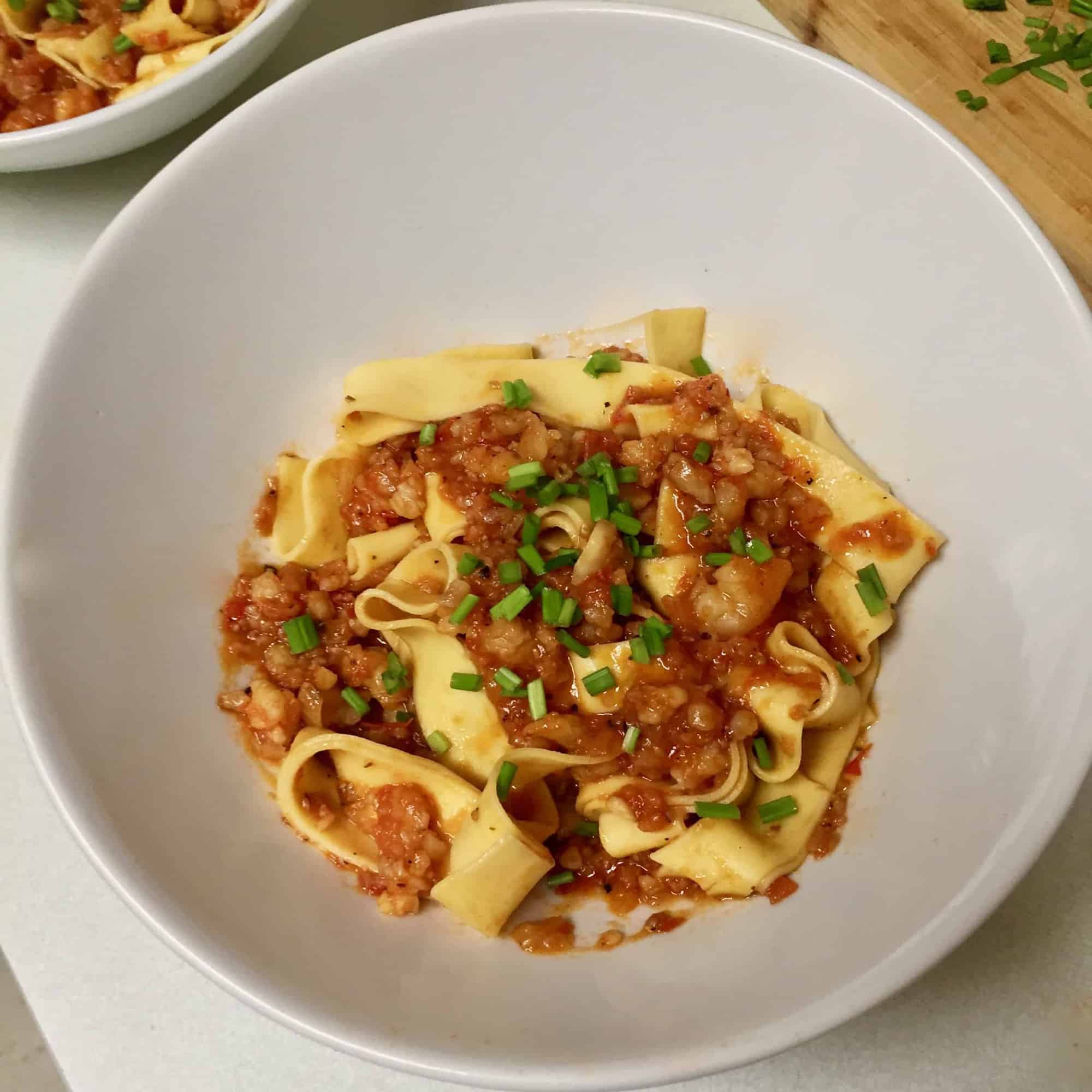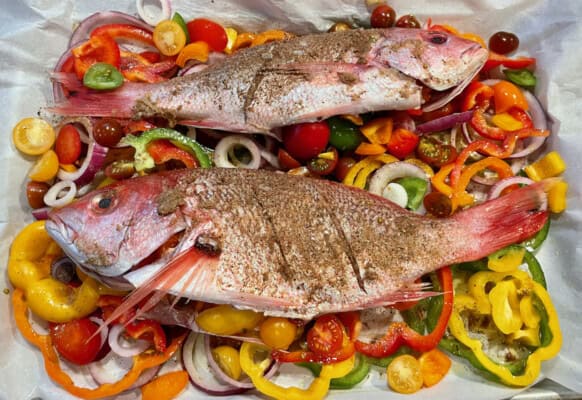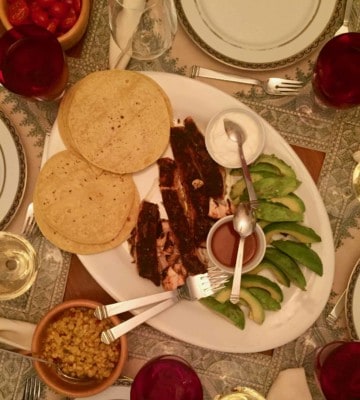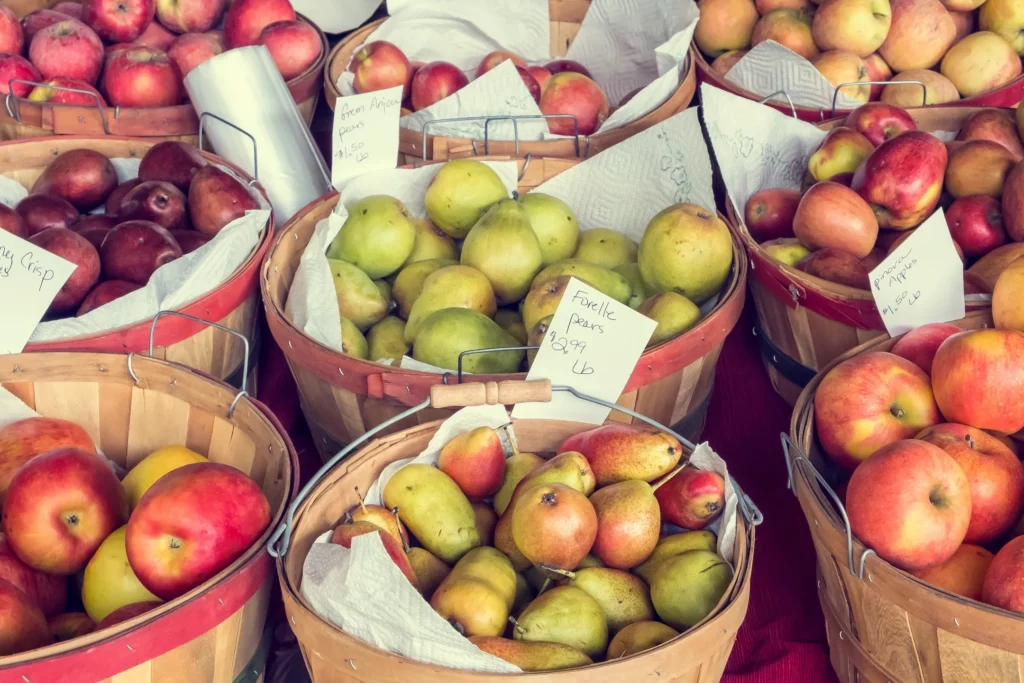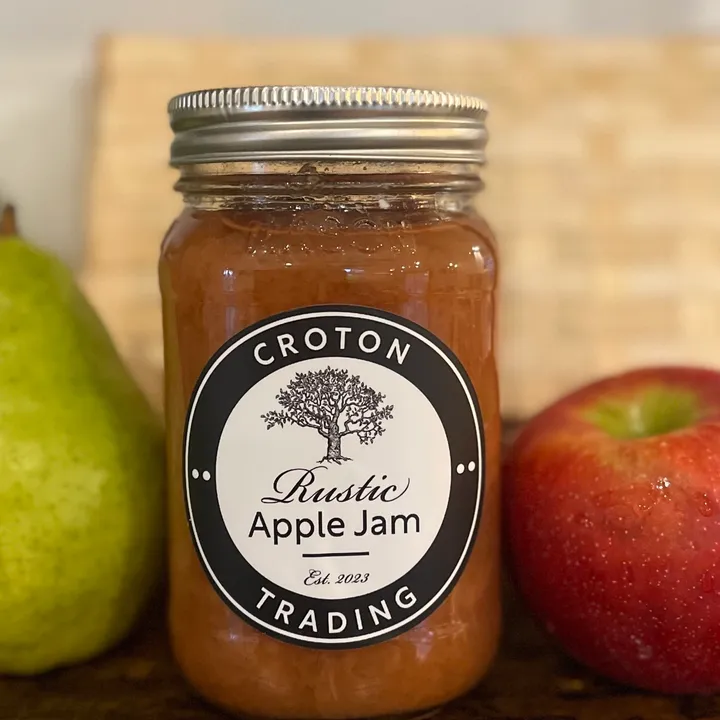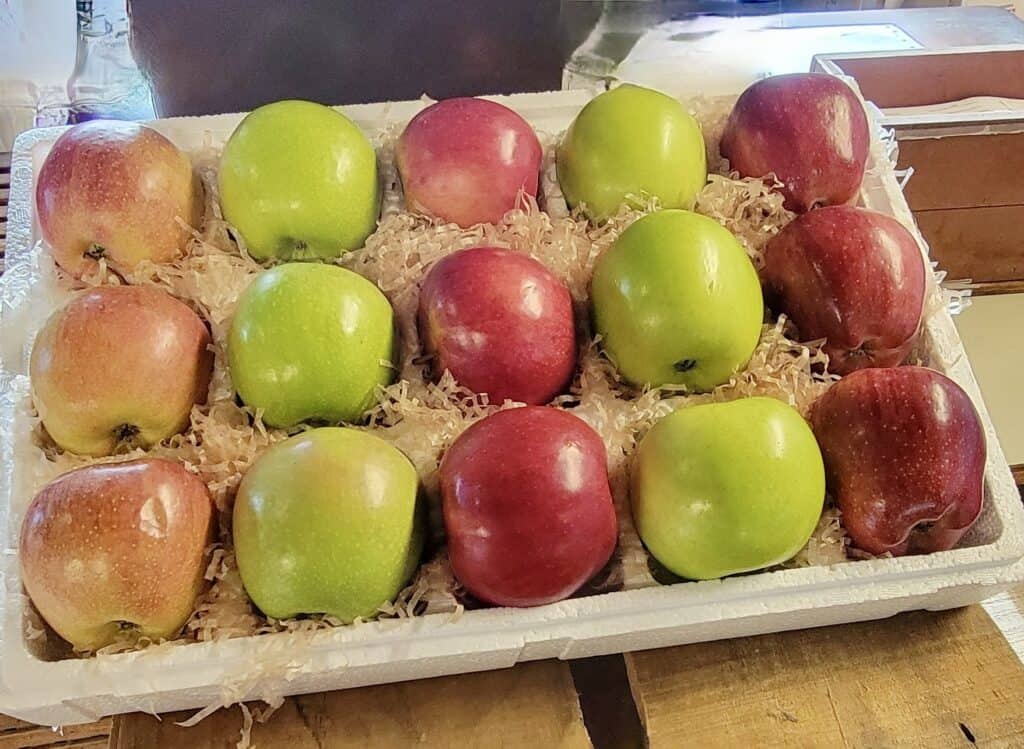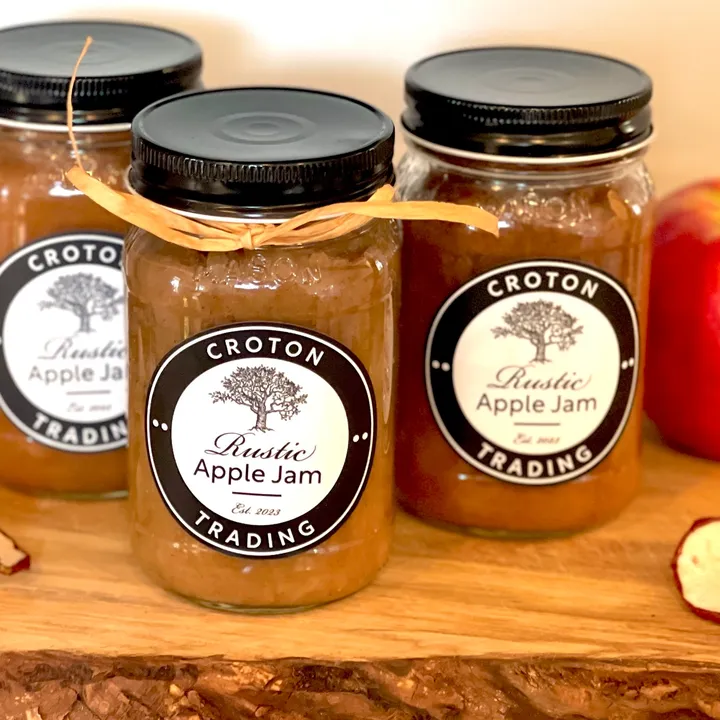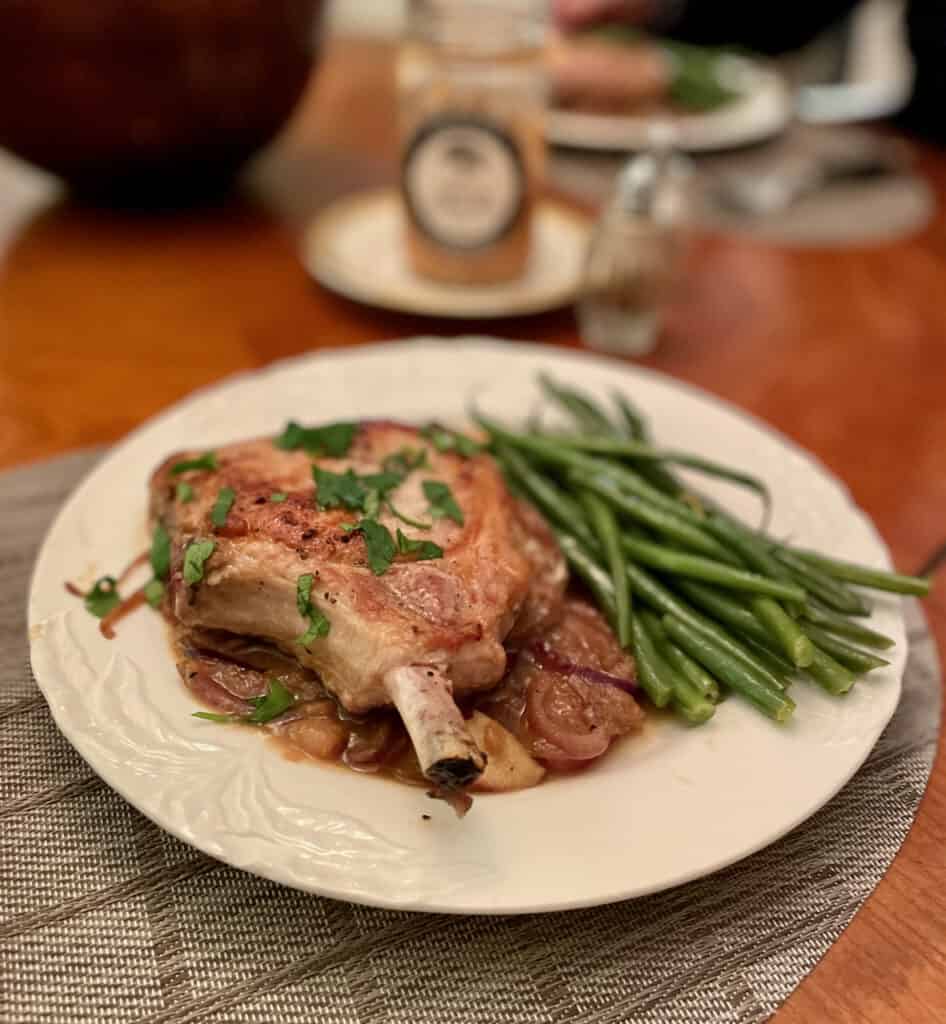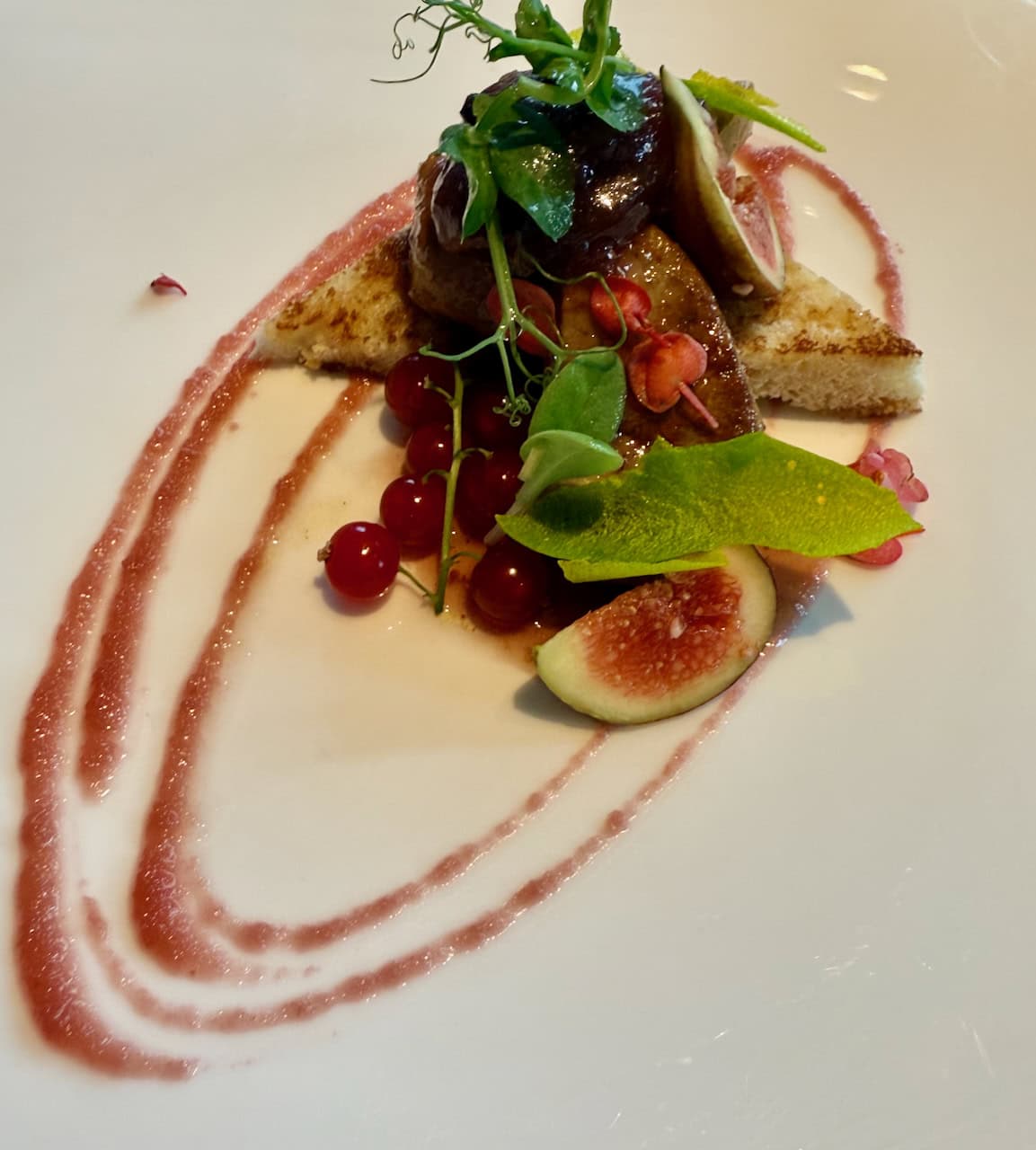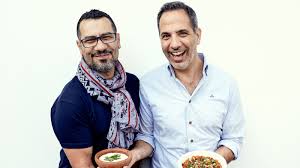 Yotan Ottolenghi is arguably one of the most influential chefs in the world. His latest cookbook “Ottolenghi Simple” (Ten Speed Press 2108) was just released in this country last week. Chef Ottolenghi has been a frequent presence on these pages and links to his other recipes will follow this one. Briefly, Yotan Ottolenghi is an Israeli chef whose Italian family immigrated to Israel. His parents were academics and Ottolenghi himself has a Master’s Degree in Comparative Literature from Tel Aviv University. Cooking however was his passion and in 1997, he moved to London to attend the Cordon Bleu. He was soon thriving first as a pastry chef and then in a highly successful partnership with Sami Tamimi, an Arab-Palestinian Chef who, the pair discovered, had grown up just miles apart in Jerusalem if on the other side of the Israeli Palestinian conflict. The pair now own half a dozen delis, restaurants and brasseries.
Yotan Ottolenghi is arguably one of the most influential chefs in the world. His latest cookbook “Ottolenghi Simple” (Ten Speed Press 2108) was just released in this country last week. Chef Ottolenghi has been a frequent presence on these pages and links to his other recipes will follow this one. Briefly, Yotan Ottolenghi is an Israeli chef whose Italian family immigrated to Israel. His parents were academics and Ottolenghi himself has a Master’s Degree in Comparative Literature from Tel Aviv University. Cooking however was his passion and in 1997, he moved to London to attend the Cordon Bleu. He was soon thriving first as a pastry chef and then in a highly successful partnership with Sami Tamimi, an Arab-Palestinian Chef who, the pair discovered, had grown up just miles apart in Jerusalem if on the other side of the Israeli Palestinian conflict. The pair now own half a dozen delis, restaurants and brasseries.
Ottolenghi also began writing a weekly column for The Guardian entitled “The New Vegetarian” even 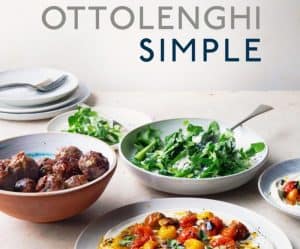 though he is not vegetarian himself. Quite often his vegetarian recipes were accompanied by a suggestion of what would pair well with a particular cut of meat. You can’t always put Ottolenghi’s recipes into a particular box. While there’s often a Middle Eastern flavor to his food, they don’t neatly fit into traditional categories. That likely explains his extraordinary popularity. His first cookbook, titled simply “Ottolenghi’ has sold over 100,000 copies. Six more have followed including “Ottolenghi Simple”, the source of today’s recipe.
though he is not vegetarian himself. Quite often his vegetarian recipes were accompanied by a suggestion of what would pair well with a particular cut of meat. You can’t always put Ottolenghi’s recipes into a particular box. While there’s often a Middle Eastern flavor to his food, they don’t neatly fit into traditional categories. That likely explains his extraordinary popularity. His first cookbook, titled simply “Ottolenghi’ has sold over 100,000 copies. Six more have followed including “Ottolenghi Simple”, the source of today’s recipe.
“Simple” counts 130 recipes on its pages, all with Ottolenghi’s signature food styling showing up in every beautiful photograph. His recipes, as always, are plain-spoken and easy to follow. The book represents a streamlined Ottolenghi. Along with his Middle Eastern flavors, the criteria for including a recipe was that it contain 10 or fewer ingredients, use a single pot and pantry staples that can be made in 30 minutes or less. There’s a little wobble here that allows a dish to be “prepared ahead of time for brilliantly, deliciously simple meals”. The cookbook covers all manner of mains and even dessert all adhering to the basic premise.
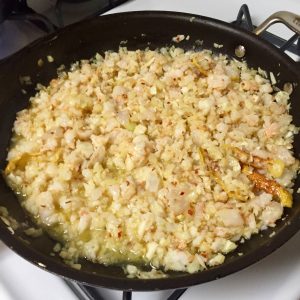
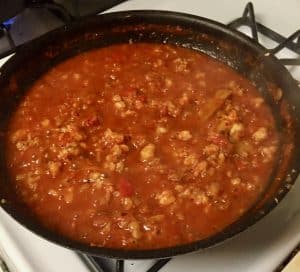
I was introduced to the book in The New York Times where Ottolenghi himself held forth on one particular subject covered in “Simple”. It was entitled “Capturing the Ocean in a Pasta Bowl. With apologies to my constant readers who will well remember that last week I also posted a pasta recipe. To my way of thinking, I could eat pasta at every meal. That’s what you get for living in Italy even if it was in my far distant youth. This Shrimp Bolognese, Ottolenghi writes “does what pasta does so well, offering a quick solution (to cooking dinner) with little fuss”. The recipe jumps the shark in that there are in fact 13 ingredients and it takes 40 minutes time. However it presses into service the Food Processor which makes the prep incredibly simple. It follows the familiar path to Bolognese—with its fennel, onion and garlic base to which is added the finely chopped shrimp. Once these are cooked, the tomato paste and cherry tomatoes brighten the shrimp mixture. To boost the fennel flavor, Pernod is added which gives both a sweetness and a shot of anise. Finally, the pasta joins the sauce in the pan and the dish is served. Here is the recipe:
Yotan Ottolenghi's Shrimp Bolognese
A perfect Pescatorian Bolognese--this one featuring the sweetness of shrimp with fennel, onions, garlic and tomatoes
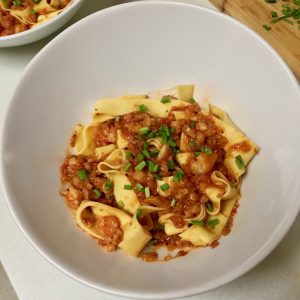
Ingredients
- ½ small fennel bulb, roughly chopped
- ½ small onion, roughly chopped
- 5 garlic cloves, roughly chopped
- ½ teaspoon red-chile flakes
- 1 ⅓ pounds/600 grams peeled, raw king prawns or extra-jumbo shrimp (or use the largest shrimp you can find)
- ⅓ cup plus 1 tablespoon/90 milliliters olive oil
- 1 lemon, finely shaved to get 5 strips of peel and squeezed to get 1 tablespoon juice
- 3 tarragon sprigs (about 5 grams), plus 1 tablespoon chopped leaves for serving. Note: I omitted this entirely and decorated the top of the dish with finely chopped chives.
- 3 ½ tablespoons tomato paste
- ¼ pound/120 grams cherry tomatoes, finely chopped
- Salt and black pepper
- ⅓ cup plus 1 tablespoon/90 milliliters Pernod (or a similar anise liqueur)
- 2 cups/500 milliliters chicken or vegetable stock
- 12 ounces/320 grams dried tagliatelle pasta
Directions
- Step 1 Add the fennel, onion, garlic and chile flakes to the bowl of a food processor and pulse about 10 times, until more finely chopped. Add the shrimp and pulse another 10 times, until finely chopped. (Don’t process too much. You don’t want the shrimp to turn to a paste. Smaller shrimp will require less pulsing, though.)
- Step 2 Add 1/3 cup/70 milliliters oil to a large sauté pan set over medium-high heat with the lemon peel and tarragon sprigs. Gently fry for 2 minutes, then add the shrimp and fennel mixture. Fry, stirring every now and then for about 10 minutes, or until the shrimp have released and then reabsorbed their liquid.
- Step 3 Add the tomato paste, tomatoes, 1 1/4 teaspoons salt and a very generous amount of black pepper and fry for 4 minutes, stirring every now and then until the tomato paste becomes thick and sticky and begins to brown. Carefully pour in the Pernod and let it bubble away for 1 minute (it may flame).
- Step 4 Add the stock and 1 tablespoon lemon juice, turn the heat down to medium and simmer gently for 15 minutes, lowering the heat if it is bubbling too much. Discard the tarragon sprigs and lemon peel.
- Step 5 Meanwhile, cook the pasta per package instructions until al dente, then drain well and add to a large bowl. Pour over the sauce and toss together well. Transfer to a platter and drizzle over the remaining tablespoon/20 milliliters oil. Finish with plenty of pepper and the chopped tarragon or chives and serve.
Yotam Ottolenghi’s Splendid Blueberry, Almond and Lemon Cake
